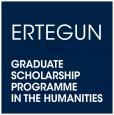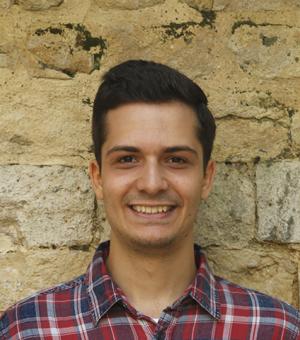Stephan Nitu (Romania)
My history education at school started with ancient history…and I sort of got stuck there. Learning about civilisations so remote yet so relevant to our own present was simply the most fascinating thing to do in my opinion at the time. When that refused to change as I grew up, I pursued an Ancient History BA at UCL, graduating with the Faculty Medal in 2018. Coming to Oxford next, I was captivated by the question of thought: how did people think in/about their lifeworld? How do we as historians think about their lived experiences, and about our discipline? My MPhil at Ertegun examined the Athenian invention of their own history, as the traumatic defeat to Macedon in 338BC was constantly renegotiated through the filters of memory, cognitive dissonance, and rhetoric.
I have also previously worked on the power of the disembodied voice in ‘speaking’ first-person epitaphs, as well as ‘competitive altruism’—a phenomenon wherein wealthy Athenians lavishly performed public services not out of generosity, but as part of an intra-elite competition to be the most altruistic agent and reap political influence. Competitive altruism inadvertently precipitated the beginnings of Athenian democracy, as the losing elites in the game aimed to undercut their peers by shifting fickle individual benefactions towards stable state payments. Currently, my DPhil project casts a methodological eye over the Athenian economy, beset by claims of remarkable efflorescence and attempts to quantitatively measure economic livelihoods. Beside the cognitive and statistical fallacies at work in such scholarship, I also highlight the ontological differences between modern developmental economics and the Athenian perception of what a transaction was, or who could be considered an economic agent.
Before I knew it, I was delving into human flourishing, defined much more broadly than in strict economic terms. The academic study of wellbeing, happiness, or contentment had been largely inexistent compared to the mountains of work on grief, anger, and pathology. This is now changing, and my path forward lies among the new or resurfacing fields of the positive humanities, character education, and civil discourse. The humanities—especially history—can contribute enormously to questions of how people have thrived and thought about flourishing. Building on a collaborative report about the future of the humanities at the European Humanities Conference, I organized a conference entitled Humanities Forward at Ertegun, a forum for articulating the value and relevance of the humanities in society. This is now a book due out in 2025, written alongside Arlene Holmes-Henderson and featuring leading voices from academia, publishing, schools, and policymaking.
As I move into the transdisciplinary space of studying human flourishing through the humanities, none of my personal and academic development would have been possible without the incredible support of the Ertegun House community. I am deeply grateful for my scholarship and so excited to spend many years in the company of like-minded scholars blazing innovative trails all throughout their own fields. Here is a model of scholarship where interdisciplinarity, well-being, and collaboration are all structurally embedded, a model that inspires me and will perhaps inspire the future of the Humanities.




